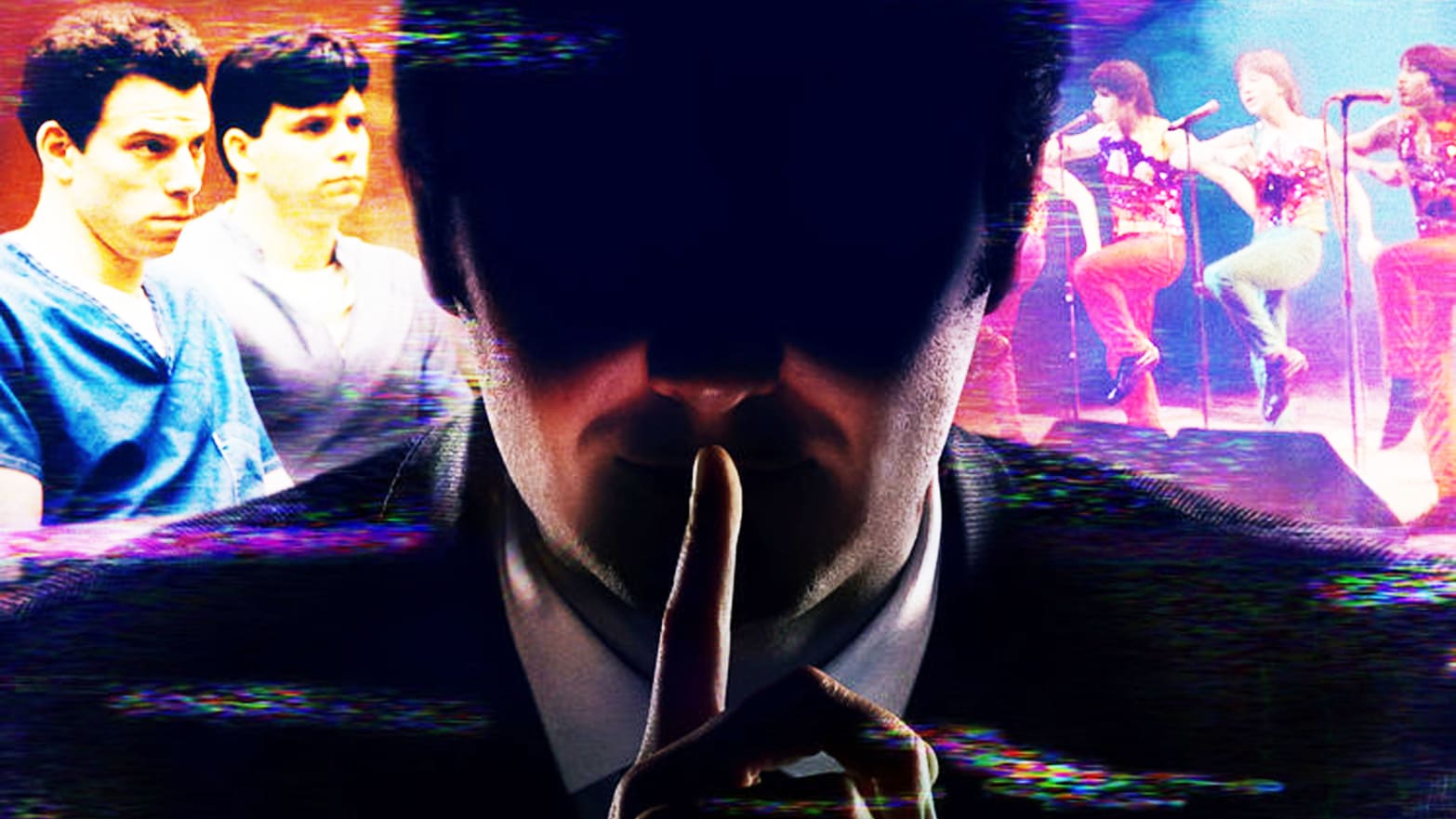Lyle and Erik Menendez claimed that they killed their parents in 1989 because they feared for their safety following a lifetime of sexual abuse perpetrated by their father, José, an RCA Records executive, and condoned by their mother, Kitty. That defense earned them separate mistrials in 1993 but didn’t succeed in their subsequent 1996 retrial, which concluded with convictions and life sentences without the possibility of parole. In the ensuing 30 years, they’ve maintained their victimization story, and now, a new Peacock docuseries purports to have evidence that might corroborate their allegations against José—and it comes from the unlikeliest of sources.
Menendez + Menudo: Boys Betrayed (May 2) boasts a bombshell in store for viewers who may have (naturally) assumed that the Menendez saga was over. Roy Rosselló, a key member of the Puerto Rican boy band sensation Menudo, asserts that, throughout the course of his 1983-86 tenure in the group, he was habitually abused by its creator and manager, Edgardo Diaz. Moreover, he contends that he was raped by José Menendez, who signed Menudo to its RCA contract and who was a close associate of Diaz, whom he entertained (along with the band members) at his Beverly Hills home. During one of those visits, Roy says he saw Erik and Lyle, after which he was drugged and assaulted—and he implies that this crime took place as an implicit means of sealing Menudo’s RCA deal.
“Their father was a child molester. He was a sexual predator,” Roy says about José at the outset of Menendez + Menudo: Boys Betrayed, thereby supporting Lyle and Erik’s story about the cruelty they suffered at their dad’s hands. This comes as explosive news to journalist and author Robert Rand and his colleague Nery Ynclan, who have spent years working to exonerate the Menendez brothers because they’re convinced that the siblings were wrongly convicted of first-degree murder rather than manslaughter, which would have saddled them with a lighter prison sentence. Peacock’s docuseries basically assumes that same viewpoint, sometimes to a fault, skimming past discussions of the prosecution’s case against Lyle and Erik (other than to say that they were portrayed by the district attorney as greedy rich kids) in order to avoid addressing any complicating (i.e., less flattering) details, and to guarantee that they come across as railroaded innocents.
Menendez + Menudo: Boys Betrayed plays a somewhat rigged game, and yet it does intriguingly suggest that Lyle and Erik’s abuse accusations would have been treated far differently today, when accounts of powerful men heinously exploiting their power—be it Catholic Church priests, Bill Cosby, Harvey Weinstein, or Michael Jackson, whose tainted-legacy shadow hovers over this tale—have become commonplace. The public’s understanding of childhood trauma and the scars it leaves is significantly greater than it was in the ’90s. It’s not unfathomable, then, to think that in the present climate, Lyle and Erik’s charges would have sounded more plausible than they did at the time—and that no judge would have dared limit testimony about their alleged sexual abuse, as was the case in their second trial, when they were found guilty.
Still, such notions are undermined by the sense that Menendez + Menudo: Boys Betrayed is deliberately avoiding a comprehensive reexamination of the case. In fact, its primary focus turns out to be not Lyle and Erik, but Roy, whose first-person interviews dominate the proceedings. In them, he discusses the abuse that prefaced his joining Menudo—whose roster was constantly turned over, since members couldn’t be older than 16—and which continued afterward in brutal fashion. When on tour, Roy always slept in Diaz’s bedroom, and if he stepped out of line, he was physically attacked. In one horrific anecdote, Roy recalls getting caught trying to see a girl and being locked in a bathroom, nude, for the entire night, only to be viciously raped and beaten upon his release from captivity.
Much of Menendez + Menudo: Boys Betrayed involves Roy speaking candidly and tearfully about his arduous ordeal, the multiple suicide attempts it instigated, and his hunger for justice. It also features him visiting former Menudo associates—New York Post photojournalist and Menudo merchandise distributor Bolívar Arellano; recently deceased Menudo member Ray Reyes’ brother Raul; the band’s record producer and composer Papo Gely; and ex-Menudo star Ash Ruiz—who all validate his experiences in different ways. These men didn’t just know about Diaz’s pedophilic conduct, but in some cases, they’d spoken out about it previously, only to be ignored and/or persecuted by the powers that be on behalf of Diaz, a highly influential and respected Puerto Rican celebrity. Alongside Roy’s own sincere commentary, their testimony (including Raul’s admission that he once saw Roy and Diaz in bed together, naked) is shocking and persuasive.
Unfortunately, though, Roy’s encounter with José winds up being an afterthought for long stretches of Menendez + Menudo: Boys Betrayed. Part of the reason for that sidelining, it appears, is that Roy doesn’t fully remember what took place. After riding in a limo with Diaz and José, who looked like he “wanted to devour me,” and then being served wine that he now assumes was laced with a narcotic, Roy’s memory goes hazy and then outright blank. When he awakened in his hotel room the next morning, he discovered physical evidence that he’d been violated, but couldn’t 100 percent ascertain who had been the culprit. Despite Rand bringing this to the attention of Lyle, Erik, and their attorney Cliff Gardner—and he and Ynclan making excited and optimistic pronouncements about what it’ll mean for the Menendez boys’ fate—it’s not clear that this is enough to move the legal needle. No matter how hard the final episode strains to paint this revelation in a momentous light, considerable skepticism remains.
Menendez + Menudo: Boys Betrayed thus plays like the tip of a potential iceberg that has yet to be fully assessed. As with more than a few recent docuseries, it’s so eager to be first with its headline-grabbing imputations that it jumps the gun, leaving viewers to speculate about a sensational future that might come to pass should further substantiation eventually materialize.

